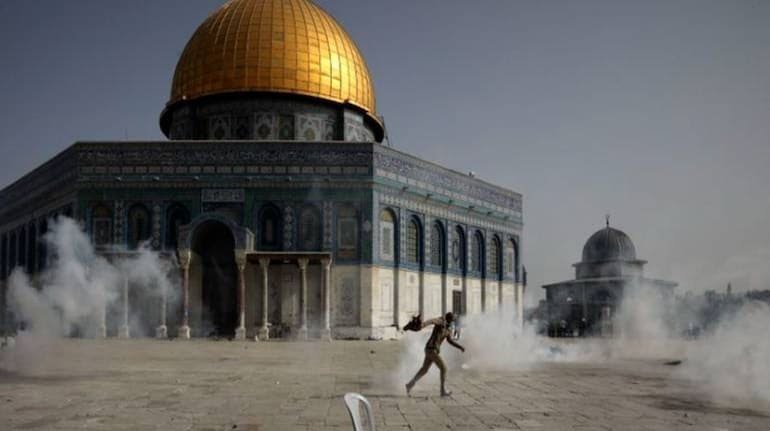|
Listen to article
Getting your Trinity Audio player ready...
|

The death of a Kerala nurse brought home to us the human consequences of the current conflict in Israel and the Gaza strip. Soumya Santhosh, who was looking after an elderly Israeli woman, was killed when a rocket from Gaza crashed into the apartment she was in. Several Israelis died or were wounded in reprisal aerial attacks, Palestinians died in Gaza in much larger numbers.
A few days ago West Asia appeared closer to an actual war than at any time in the recent past. We have to ask: cui bono? Who benefits? Who has the motive and the means?
There are several parties involved, either directly or indirectly: the Israeli government, Israeli Arabs, the Palestinian Authority, Hamas, the US, Iran and even Turkey.
Both Israel’s Prime Minister Benjamin Netanyahu and the Palestinian Authority’s head Mahmoud Abbas are struggling for political legitimacy. After four elections in the last two years, Netanyahu still cannot cobble together a working coalition. Abbas, in power since 2004, finds his authority challenged by the radical Hamas, which has grievances against both the PA and Abbas, and accuses them of selling out. A viral video from a UN Human Rights Commission hearing by a Hamas activist brought this out graphically.
Thus, for both leaders, domestic political compulsions trump other considerations: conflict strengthens their appeal. But there are new and dangerous elements: Israeli own Arab citizens have become more aggressive, as seen from serious clashes at Jerusalem’s Al-aqsa mosque/Wailing Wall complex, considered holy by the two sides. Similarly, the Palestinian street in Gaza/West Bank appears more receptive to Hamas than in the past.
Of course, Israel is a functioning State, so it will limp through repeated political turmoil, as for example Italy does with its frequent national elections. Palestine, though, is a quasi-State or a proto-State, with two territories (Gaza and the West Bank) separated by Israel. It may more easily collapse into chaos and open civil war.
There are also theories that Israel deliberately instigated the violence by massing its armed forces on the Gaza border, falsely signalling an imminent invasion, which caused Hamas to mobilize and begin its rocket launches, giving Israel an excuse to retaliate hard, specifically targeting the Hamas leadership.
Writing in the Indian Express, General Syed Ata Hasnain points to Iran as the possible instigator. Unlike much of the Arab world, Iran has never let up on its rhetoric about the total destruction of the Jewish state. It also has proxies in several countries on the borders of Israel: Hezbollah and Hamas are two of them. Iran has not forgotten Israel’s suspected attacks on its strategic assets, for instance the Stuxnet worm that damaged its nuclear centrifuges, or the Israeli instigated assassination of its top general in Iraq, Qasem Soleimani.
Non-Arab Iran and Turkey now seem to be positioning themselves as the protectors of the Muslims everywhere, especially of Arab Palestinians. But this has come at a cost. The Abraham Accords of 2019 signed by Bahrain and the UAE signaled Gulf Arab frustration with Palestinian unwillingness to seek a settlement with Israel. Saudi Arabia reduced its budgetary support for Palestine by 80% from $174 million.
That is where US politics comes into the picture. The Trump Administration was instrumental in the rapprochement between Israel and Gulf Arab states like Bahrain, the UAE and Saudi Arabia. Trump was unconditionally supportive of Israel. But the Biden Administration has signaled an about-turn, and is restarting nuclear negotiations with Iran. The Abraham Accords signaled that the Arab world, and crucially, Saudi Arabia, were no longer committed to the Palestinian cause. But with a sympathetic Biden in power, it appears Iran and its Palestinian allies felt it was the right time to raise the temperature.
The brinkmanship by both Israel and Hamas may just be saber-rattling. But it could also spiral out of control. And the optics are terrible, for both sides, in terms of human suffering.
India has a dilemma on its hands, being friends with almost all the players. I hope India does not wade into this minefield, but instead only makes anodyne statements about the need for peace and a definitive just settlement for reaching an end to the agony of innocent civilians.






Add comment